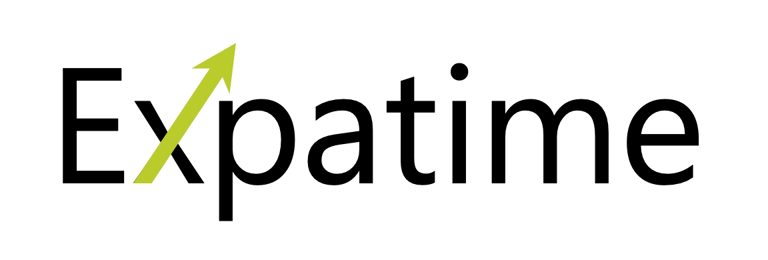Cultural Differences in the German Workplace: What Expats Need to Know to Avoid Misunderstandings


Introduction to the German Work Environment
The German work environment is defined by a set of characteristic features that are especially important for expats. One of the most notable traits is punctuality. In Germany, punctuality is not only appreciated but also regarded as a sign of respect. Employees are generally expected to arrive on time for meetings and appointments, which reflects positively on their professionalism. Being late can be perceived as impolite and may negatively affect one’s professional reputation.
Another key element is the hierarchical structure within companies. German work culture places great emphasis on well-defined hierarchies based on clearly assigned roles. This means that decisions are often made at higher management levels, and it is important to respect these structures. New employees should familiarize themselves with internal company policies quickly to avoid misunderstandings and to work effectively within teams.
German work culture is also characterized by professionalism and efficiency. Employees usually strive to complete their tasks to a high standard and within established deadlines. Although this may sometimes seem demanding, it is a fundamental part of German business etiquette. With a strong focus on achieving goals and delivering results, the entire work environment is designed to encourage productivity and innovation. Expats should be aware of these expectations and adapt their work habits accordingly.
In summary, for expats, developing a solid understanding of German work culture is essential for success. Respecting punctuality, hierarchy, and efficiency is crucial to avoiding misunderstandings and integrating successfully into the workplace.
Communication and Interaction in the German Workplace
Communication in German workplaces is characterized by several specific features that are deeply influenced by the country’s cultural context. One of the most important aspects is directness, both in spoken and written communication. Germans tend to convey information clearly and precisely, which is often seen as a form of respect for others’ time and needs. For expats, this direct communication style can initially be challenging—especially if they come from cultures where indirect or diplomatic communication is more common.
Another significant aspect of German workplace communication is formality in address. Unlike in many other cultures where the use of first names quickly becomes the norm, Germans often prefer a more formal address—especially at the beginning of a professional relationship. The use of titles and last names is not just a matter of politeness, but also a sign of professionalism and respect. Expats should be aware of when formal address is appropriate to avoid misunderstandings.
Transparency is also a key feature of communication in German companies. Open information exchange and regular feedback are highly valued. Expats are encouraged to express their opinions and ask for clarification when needed. Feedback is considered an important tool for continuous improvement. While positive feedback is often given directly and specifically, constructive criticism is also usually delivered in a straightforward yet professional manner. Learning these communication nuances is crucial for fostering positive professional relationships and a harmonious work environment.
Teamwork and Hierarchies
In German business culture, teamwork plays a crucial role, with an emphasis on shared goals and cooperative action. In many companies, decision-making often involves team consensus. This means that the opinions and suggestions of all team members are valued and considered before final decisions are made. Such an approach fosters a sense of belonging and ensures that decisions are well-informed and benefit from diverse perspectives.
Another central aspect of German companies is the structure of hierarchies. While some organizations prefer flat hierarchies where all roles are seen as equally important, others maintain more traditional structures with clear hierarchical levels. In flat hierarchies, individual responsibility and employee engagement are often higher, which tends to enhance communication and collaboration. However, traditional hierarchies can offer greater clarity regarding roles and responsibilities, which also has advantages.
For expats integrating into these cultural norms, it is important to actively participate in team meetings and contribute ideas and opinions. A respectful and open exchange is key to avoiding misunderstandings and fostering a positive team dynamic. It is advisable to learn about the specific team structure and communication culture of the company beforehand. This helps expats build effective relationships with colleagues and understand how best to contribute to teamwork. Respectful interaction and an understanding of different hierarchy levels are essential for successful collaboration.
Cultural Customs and Traditions in the Workplace
Cultural customs and traditions play a significant role in creating a harmonious work environment in Germany. During breaks, it is common for colleagues to eat and drink together. This practice not only promotes team spirit but also allows employees to get to know each other on a personal level. It is not unusual for employees to bring cake or snacks to celebrate birthdays or company anniversaries, which strengthens camaraderie and a sense of belonging.
Another important aspect is company celebrations and social events. Occasions such as Christmas parties or summer gatherings provide opportunities not only for networking but also for strengthening collegial relationships. These events usually focus on togetherness, with hierarchies becoming less pronounced and employees engaging more freely in conversation. Understanding these social customs is crucial for expats to avoid misunderstandings and integrate smoothly into the team.
To make a positive impression, expats should show respect for these customs and actively participate in team-oriented activities. Engaging in casual lunchtime conversations, sharing a toast with colleagues, or bringing small gifts for celebrations can all have a positive impact. Doing so not only supports personal integration into the workplace but also demonstrates appreciation for German customs and traditions. A good understanding of workplace culture is therefore essential for creating a pleasant and productive work environment.
Career
Successful support for expats in Germany.
Finance
Consultation
info@expatime.de
+49 (0) 172 - 933 28 20
© 2025. All rights reserved.
